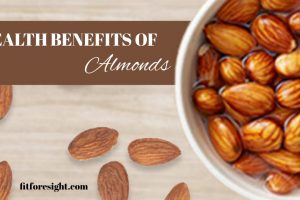A Comprehensive Guide to a Healthier You
In a world filled with fad diets and quick-fix solutions, the Whole30 diet stands as a refreshing and transformative approach to achieving a healthier, more balanced lifestyle. This 30-day nutrition program is not just about shedding a few pounds but is instead a comprehensive reset for your body and mind. In this article, we’ll delve into what the Whole30 diet is, how it works, and how you can embrace it to improve your overall well-being.
What is the Whole30 Diet?
Whole30 is a dietary program designed to eliminate processed foods, sugar, grains, dairy, legumes, and certain additives from your diet for a period of 30 days. Created by Melissa Hartwig Urban and Dallas Hartwig in 2009, this regimen has gained popularity as a way to reset your body and identify potential food sensitivities.
The Rules of Whole30
The rules of the Whole30 diet are straightforward but require commitment:
- No Sugar or Artificial Sweeteners: During the 30 days, all forms of sugar are off-limits, including natural sweeteners like honey and maple syrup.
- No Grains: Say goodbye to wheat, rice, oats, and other grains.
- No Dairy: Dairy products, including milk, cheese, and yogurt, are excluded.
- No Legumes: This means no beans, lentils, peanuts, or soy products.
- No Alcohol: Alcoholic beverages are not allowed.
- No Processed Foods: Processed and pre-packaged foods are to be avoided.
- No Junk Food: Even if it technically complies with the above rules, you’re encouraged to stay away from “healthy” versions of junk food.
The idea is to focus on whole, unprocessed foods like lean meats, fish, fruits, vegetables, nuts, and seeds. It’s about eating real food that nourishes your body and eliminates potential triggers for inflammation, digestive issues, and cravings.
Benefits of the Whole30 Diet
- Improved Digestion: Eliminating potential food irritants can help identify and address food sensitivities, leading to better digestion.
- Increased Energy: Many Whole30 participants report increased energy levels and improved mood.
- Weight Loss: While not primarily a weight loss program, many people do experience weight loss as a result of the Whole30 diet.
- Better Skin: Clearer skin is a common side effect of cutting out processed foods and sugar.
- Enhanced Mental Clarity: Some people report improved mental focus and reduced brain fog.
- Establishing Healthy Habits: The 30-day duration helps create sustainable habits and encourages mindful eating.
Tips for Success
- Plan Your Meals: Meal planning is crucial to stay on track. Create a menu for the week and prep your ingredients in advance.
- Read Labels: Pay close attention to ingredient lists, as many processed foods contain hidden sugars and additives.
- Stay Hydrated: Drink plenty of water to stay hydrated, which can also help reduce cravings.
- Seek Support: Consider joining a Whole30 community or finding an accountability partner to share your journey with.
- Focus on Whole Foods: Emphasize a variety of vegetables, lean proteins, and healthy fats to ensure a balanced diet.
The Whole30 diet is not just a temporary weight loss plan but a transformative approach to improving your overall health and well-being. By eliminating processed foods and focusing on whole, nutrient-dense options, you can reset your body, identify food sensitivities, and establish long-lasting healthy eating habits. While the 30-day commitment may seem daunting, the benefits of improved digestion, increased energy, and a clearer mind are well worth the effort. So, why wait? Start your Whole30 journey today and discover a healthier, happier you.

























Add Comment